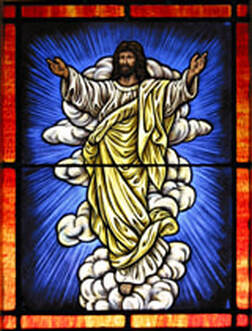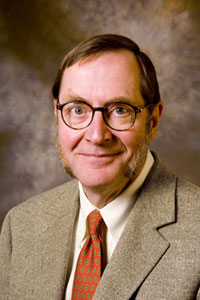|
Bible Blog for Easter (Isa 25:6-9; Ps 118:1-2; 14-24; 1 Cor 15:1-11 or Acts 10:23-34; John 20:1-18 or Mark 16:1-8)  He is Risen, from Art in the Christian Tradition, a project of the Vanderbilt Divinity Library, Nashville, TN. http://diglib.library.vanderbilt.edu/act-imagelink.pl?RC=58028 [retrieved March 29, 2021]. Original source: https://www.flickr.com/photos/apmethodist/4354910684. He is Risen, from Art in the Christian Tradition, a project of the Vanderbilt Divinity Library, Nashville, TN. http://diglib.library.vanderbilt.edu/act-imagelink.pl?RC=58028 [retrieved March 29, 2021]. Original source: https://www.flickr.com/photos/apmethodist/4354910684. Both OT lections anticipate a time when God will overcome death. The book of Isaiah looks forward to a God who will “swallow up death forever,” one who will “wipe away the tears from all faces” (Isa 25:7-8). And in a song of thanksgiving also used on Palm Sunday, an individual who has been under attack and who was rescued sings, “I shall not die, but I shall live” (Ps 118:17). About this verse, James Mays writes, “The church has found in v. 17 the expression of the transformation worked by the resurrection in one’s fundamental stance in life.” (Psalms, 30). In a similar vein, Martin Luther thought “all the saints have sung this verse and will continue to sing it to the end.” Comparable convictions led the psalmist to rejoice in a refrain, “God’s steadfast love endures forever.” The gospel lections offer the option of reading from either Mark or John. It is useful to read both, since they offer such different perspectives on the experiences of those who went to the tomb. In Mark, Mary Magdalene, another Mary, and Salome go to the tomb and discover that it is empty. In John, Mary Magdalene goes, finds that it is empty, runs to Peter and John, and tells them what she has seen.They, then, run to the tomb. In the original ending of Mark’s gospel (Mk 16:1-8), no one sees Jesus. Instead, the women are told that “he has been raised” and that they are to go to Galilee, where they will see him. They respond with feelings of terror, amazement, and fear. In John, the two disciples, after seeing the empty tomb, simply returned to their homes. In neither case does Jesus appear in the empty tomb scene. The empty tomb evoked varied responses. Mary Magdalene thought that some group had taken Jesus’ body out of the tomb. Peter saw the tomb and then returned home. “The other disciple” (John) saw and believed.” John does not indicate what he believed, but Gail O’Day maintains that, for him, the tomb’s “emptiness bears witness that Jesus has conquered death.” (NIB IX, 841). John believes this even before he experiences directly the risen Christ. These diverse responses invite readers to contemplate how they might have responded when seeing the empty tomb. The lection in John does not end with Mary’s initial response. Instead, the evangelist reports she encountered Jesus, but that, initially, “she did not know that it was Jesus.” (See a similar response by seven disciples [Lk 21:4]). Only when he speaks her name, does she recognize him. In Luke, two disciples who had not been able to recognize Jesus did so when he took bread, blessed it, and gave it to them. Clearly, those who knew him perceived the risen Jesus only gradually. (Fully worked-out notions of the risen Jesus appear in the lections drawn from Acts and 1 Corinthians.)
0 Comments
Your comment will be posted after it is approved.
Leave a Reply. |
Details
AuthorDavid Petersen is Franklin N. Parker Professor Emeritus of Old Testament, Emory University. While at Emory, he was also Academic Dean at the Candler School of Theology, where he received the Emory Williams Distinguished Teaching Award. Archives
April 2021
Categories
All
|

 RSS Feed
RSS Feed